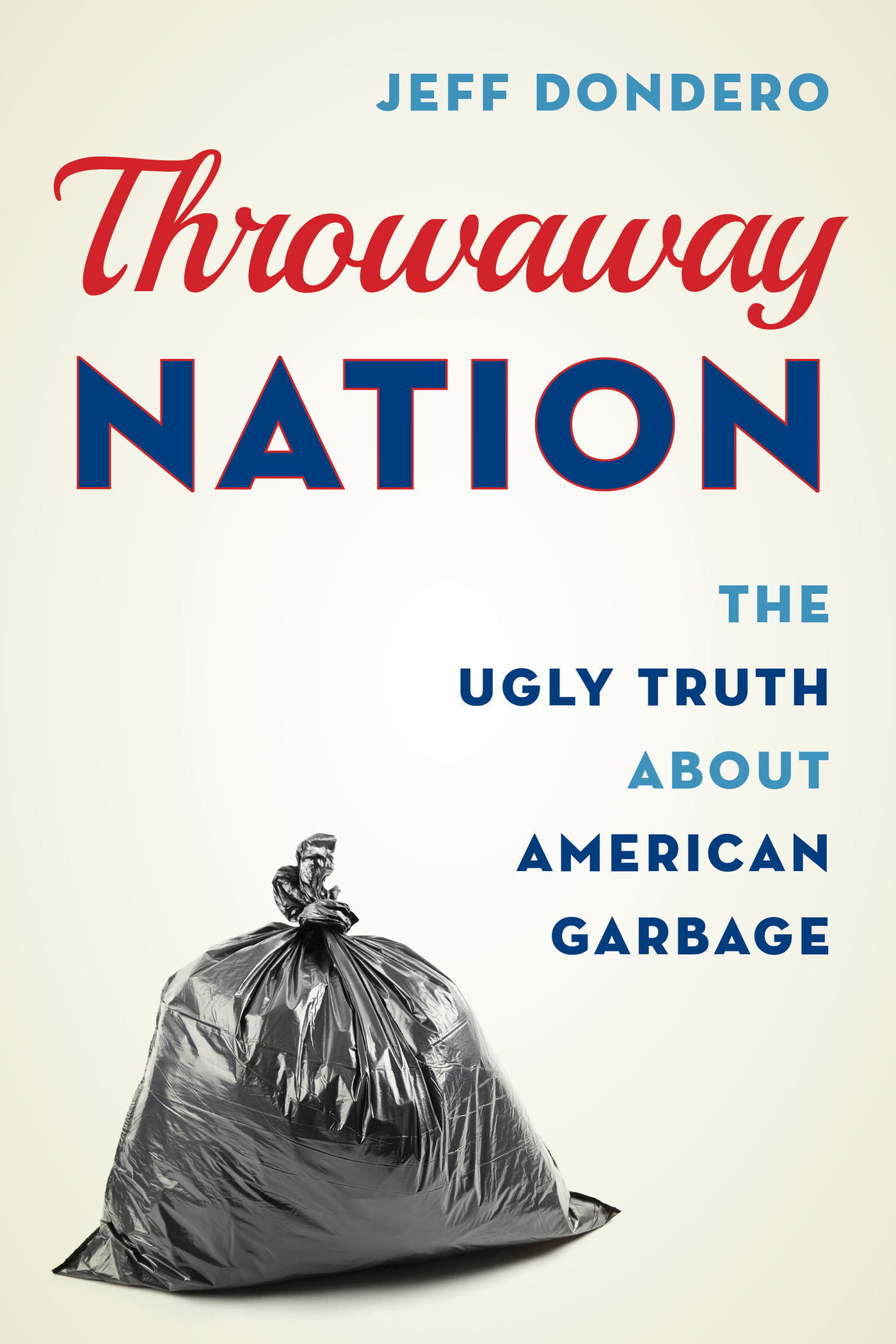Throwaway Nation
The Ugly Truth about
American Garbage
Jeff Dondero
ROWMAN & LITTLEFIELD
Lanham Boulder New York London
Published by Rowman & Littlefield
An imprint of The Rowman & Littlefield Publishing Group, Inc.
4501 Forbes Boulevard, Suite 200, Lanham, Maryland 20706
www.rowman.com
Unit A, Whitacre Mews, 26-34 Stannary Street, London SE11 4AB
Copyright 2019 by Jeff Dondero
All rights reserved. No part of this book may be reproduced in any form or by any electronic or mechanical means, including information storage and retrieval systems, without written permission from the publisher, except by a reviewer who may quote passages in a review.
British Library Cataloguing in Publication Information Available
Library of Congress Cataloging-in-Publication Data
Names: Dondero, Jeff, 1947
Title: Throwaway nation : the ugly truth about American garbage / Jeff Dondero.
Description: Lanham, Maryland : Rowman & Littlefield, [2019], an imprint of The Rowman & Littlefield Publishing Group, Inc., | Includes bibliographical references and index.
Identifiers: LCCN 2018029445 (print) | LCCN 2018044311 (ebook) | ISBN 9781538110331 (electronic) | ISBN 9781538110324 (cloth : alk. paper)
Subjects: LCSH: Refuse and refuse disposalSocial aspectsUnited States. | Salvage (Waste, etc.)United States.
Classification: LCC HD4482 (ebook) | LCC HD4482 .D66 2019 (print) | DDC 363.72/88dc23
LC record available at https://lccn.loc.gov/2018029445
 TM The paper used in this publication meets the minimum requirements of American National Standard for Information Sciences Permanence of Paper for Printed Library Materials, ANSI/NISO Z39.48-1992.
TM The paper used in this publication meets the minimum requirements of American National Standard for Information Sciences Permanence of Paper for Printed Library Materials, ANSI/NISO Z39.48-1992.
Printed in the United States of America
Acknowledgments and Disclaimer
Acknowledgments
The author wishes to thank the many people who assisted in the creation of this book, whom I call curators of information. These are the people who tirelessly gather facts and figures to illuminate the world and to give others something to ponder.
As always, very special thanks to my ad hoc editor and sounding board, Patrick Totty, for advice, confidence, encouragement, suggestions, conversation, a few cocktails, and aid in many ways.
To my editor, Suzanne Staszak-Silva, with unflagging patience in getting this large undertaking in order. To my production editor, Andrew Yoder, and to Rowman & Littlefield for giving me the opportunity to allow others to read what I write.
Disclaimer
It is important to remember, There are lies, damn lies, and statistics. Most of the stats here have been gathered by local, state, federal, and worldwide government agencies; independent scientists and writers; universities; various water and power companies; and other informed sources. Consequently, I do not claim that all the statistics presented represent accurate and true statements, percentages, and facts, and I do not warrant or make any representations as to the content, accuracy, or completeness of the information, text, graphics, charts, web links, websites, and other items contained in their media presentations.
Aggregating and writing information for this kind of book has its inherent problems and predicaments. When presented with questions, people use different ways to find diverse answers and conclusions. Consequently they may vary, sometimes quite a bit. In addition, some of the facts presented might be affected by time, changing world events, or new discoveries. As in many things, opinions vary as to number, percentages, predictions, and the veracity or divergence of the results obtained by individuals using the same information. No one can completely and accurately predict the future. And not all scientists would agree on matters such as global warming, climate change, or that CO2 is contributing to the detriment of our environment.
What I have tried to do is present an informed opinion about what the treatment of our planet, its resources, and our trash might hold for the future of the rock in space upon which we live. I have also stated that there have been doomsayers who make dire predictions about the fate of the Earth. I hope Im not one of those people, but I figure its best to err on the side of caution and not carelessness, while pointing out that I have unflagging confidence in the human race to confront and solve the problems of the dayor century.
Although most of the facts presented herein are defensible, I use them as literary, entertainment, and educational devices to give the reader a general perspective on the subject of the resources, energy, and the waste we create. In an effort to communicate more easily and effectively, I have taken some averages, mean numbers, and common sense, and I have modified statements to reflect more than one set of opinions and/or updated them using logic and informed opinion.
The lawyers put it another way: Neither the publisher nor any of its employees makes any warranty or guarantee, expressed or implied, or assumes any legal liability or responsibility for the accuracy, completeness, or usefulness of any information, percentage, apparatus, product, device, or process disclosed, or represents that its use would not infringe upon privately owned rights. Reference herein to any specific commercial copyright, product, process, or service by trade name, trademark, manufacturer, or otherwise, does not necessarily constitute or imply its endorsement or recommendation.
The views and opinions of authors expressed herein do not necessarily state or reflect those of the Rowman & Littlefield Publishing Group or its agents. The information and/or products mentioned herein do not imply an endorsement, guarantee, or warrantee. This book is for entertainment and educational purposes only.
Preface
Everyone Wants a Pet, but No One Wants to Pick up the Poop
If we were guests, we would have been asked to leave. As proprietors, our property value would have plummeted. As groundskeepers, we would have been fired. Just because we are the dominant species doesnt mean we own the place and can be passive guests. We have the responsibility to leave it for those who come next. We have influenced conditions on this planet throughout its historyand objectively not for the better. It seems that it wasnt enough to befoul just the planet; now we are also leaving our left-behinds in space and on other planets.
We are indebted to earlier life forms for contributions that range from the oxygen in the air we breathe to fossil fuels upon which our civilization has become dependent. Weve repaid that with pollution. It is unlikely that the biosphere as a whole will be endangered by our actions; it has survived bigger calamities in the past. However, humans and other livings things might not fare so well. Species are dying out at the fastest rate since the demise of the dinosaurs, 65 million years ago. Ninety-nine percent of all living things on Earth have died before us. Unlike the previous five mass extinctions, which were mostly caused by monumental natural disasters, the next event will be entirely due to human impact. And hopefully, we are not staring into the sixth, and next, extinction event.
That is scant comfort, because we are vulnerable to even modest climate changes that persist only for decades or centuries. We Homo sapiens can ill afford something that seems as trivial as a few degrees increase in the temperature of the Earth or a boost in the frequency of natural disasters or even modest sea-level rise. Our planet may seem robustafter all, life has been on the planet for more than three billion yearsbut it can nonetheless appear fragile from the perspective of individual species, especially us. That is why there is cause for concern about the global environmental consequences of our personal, agricultural, and industrial practices. The matter has generated lively debates, but they often end in stalemate, as some insist that humanity will endure any catastrophe, while others contend that we are under considerable stress and might not surviveexcept a few lucky ones that flee to another planet, hopefully not to start dystopian practices all over again.
Next page
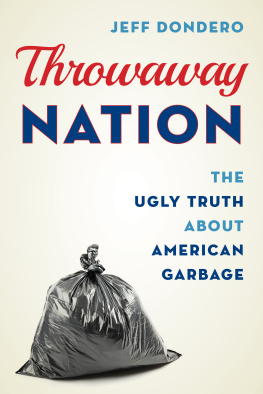

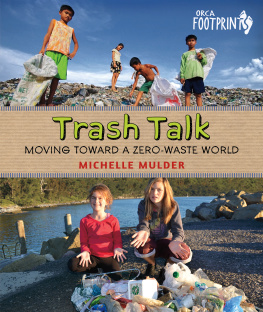
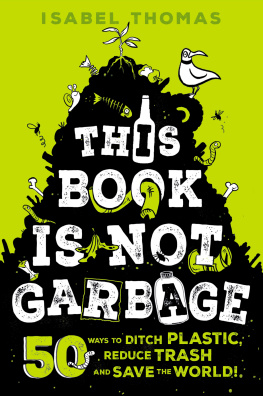
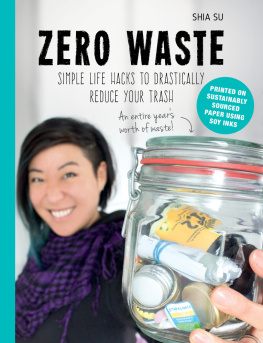
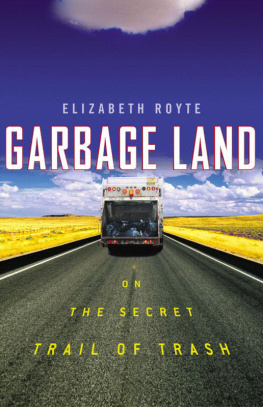
 TM The paper used in this publication meets the minimum requirements of American National Standard for Information Sciences Permanence of Paper for Printed Library Materials, ANSI/NISO Z39.48-1992.
TM The paper used in this publication meets the minimum requirements of American National Standard for Information Sciences Permanence of Paper for Printed Library Materials, ANSI/NISO Z39.48-1992.